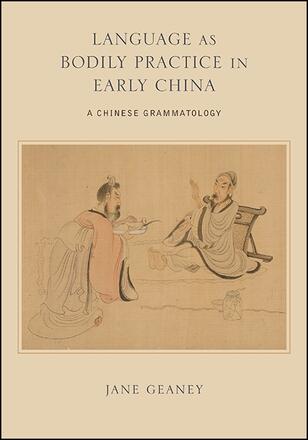
Language as Bodily Practice in Early China
A Chinese Grammatology
Alternative formats available from:
Challenges the idea held by many prominent twentieth-century Sinologists that early China experienced a “language crisis. ”
Description
Jane Geaney argues that early Chinese conceptions of speech and naming cannot be properly understood if viewed through the dominant Western philosophical tradition in which language is framed through dualisms that are based on hierarchies of speech and writing, such as reality/appearance and one/many. Instead, early Chinese texts repeatedly create pairings of sounds and various visible things. This aural/visual polarity suggests that texts from early China treat speech as a bodily practice that is not detachable from its use in everyday experience. Firmly grounded in ideas about bodies from the early texts themselves, Geaney's interpretation offers new insights into three key themes in these texts: the notion of speakers' intentions (yi), the physical process of emulating exemplary people, and Confucius's proposal to rectify names (zhengming).
Jane Geaney is Professor of Religious Studies at the University of Richmond and the author of On the Epistemology of the Senses in Early Chinese Thought.
Reviews
"Although Geaney's thorough examination of several passages from early Chinese texts is undeniably extremely valuable, it is her expert reorientation of how one should best study early Chinese texts that is arguably the volume's greatest asset. This volume will be of immense worth to those interested in the study of early Chinese religion and texts, but also, more broadly, to those with an interest in the field of the language of religion. " — Religious Studies Review
"Jane Geaney's Language as Bodily Practice in Early China invites us to entirely rethink our notion of language … This book critically brings together an impressive breadth of knowledge in Sinology, Chinese and Western philosophy, Chinese and European theories of writing, translation, and ritual studies. Geaney's nuanced, informed readings, her direct treatment of counterarguments and alternative interpretations, and her intellectual honesty with regard to our hermeneutical limitations stand out throughout the entire work. Language as Bodily Practice in Early China makes for a challenging and stimulating, often dense and complex, and overall necessary reading that will change some of the most prevalent paradigms that Sinologists use to read early Chinese texts. " — Reading Religion